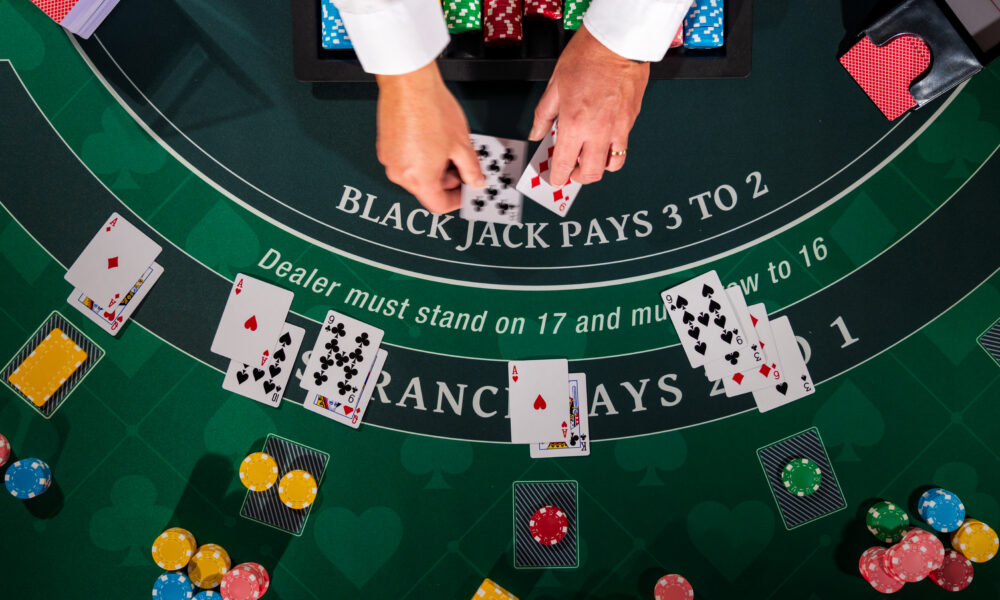The Nevada Gaming Control Board is recommending changes to two-decades-old regulations that will make private gaming salons more accessible and include games such as poker to attract more guests and generate more revenue. The changes have to be approved by the Nevada Gaming Commission and are backed by the Board and the Nevada Resort Association.
A $500-minimum wager is no longer required to play slots in the salons. Instead, casinos can set their own minimum wagers, as long as they’re approved by the Gaming Control Board. In addition, the salons don’t need to include table games and can be converted temporarily into a public gaming space. Currently, the financial criteria for admission to a gaming salon include an up-front deposit of at least $300,000, a $300,000 line of credit, or a combination of the two totaling at least $300,000. The industry wanted the price of entry reduced or eliminated.
The changes were discussed by the Board last week during a two-hour workshop, their first discussion on the subject since a workshop was held in December.
Senior Deputy Attorney General John Michela unveiled the proposed draft resolution that was debated by the Board and members of the industry before a final recommendation was made. The draft proposed lowering the financial criteria to enter a salon to $50,000, even though the Nevada Resort Association wanted that minimum to be left to the casinos.
In the end after much discussion, the Board settled on $20,000 and the Board chair can approve lower amounts. The amount applies to both table games and poker tables.
The creation of gaming salons was originally sparked by the need to cater to high rollers, who wouldn’t gamble in Nevada without them. The salons were launched in 2001 when passed by the Nevada Legislature, with a minimum requirement of $500,000; that was lowered to $300,000 in 2008.
The salons were thought to be important at a time when Nevada was facing economic uncertainty and the approach has been viewed as a success, according to Board Chair Mike Dreitzer. The reason for the updates in the law was to make them more compatible to the current environment.
“The goals remain the same,” Dreitzer said. “Bringing more revenue to the state of Nevada in uncertain times and allowing for flexible and unique amenities that certain non-restricted licensees offer their valued patrons. All of this is in the face of growing competition across the U.S. and the world.”
Adding poker to the menu would give the gaming salons the potential to generate “significant revenue for Nevada” if moved from private homes, Michela said. The proposed financial criteria for poker would require participants to buy into the game for $10,000 per player, with $50,000 total for the table minimum. A two-player table would require $25,000 each.
The biggest sticking point in the proposed regulation was whether the $50,000 threshold was too high for the liking of the casino industry.
Dreitzer said non-gaming revenue is a greater percentage of casino revenue than ever before and presents a different strategy for casinos. He understands why they want to offer salons to lower-level players who have economic impact on properties other than gaming.
Dreitzer recognizes, in this age of social media, that celebrities seek privacy in a salon, while casinos get the marketing benefit of having them at their properties. That justifies lowering the deposit level to $50,000 to attract those customers.
Nevada Resort Association CEO Virginia Valentine said lowering the minimum amount to enter a salon was the most significant impact in the legislation, but lowering the slot limit will help attract customers who otherwise chose to play in other states.
Valentine said that when the salons were enacted in 2001, less than half of the states had any form of legal gaming. Today, all but Utah and Hawaii have some form of legal gaming, she noted.
Las Vegas has also changed, with professional sports and entertainment venues that bring in a diverse group of visitors and international guests, Valentine said. That includes professional athletes, entertainers, and other high-profile guests.
“This evolution from the Entertainment Capital of the World to the Sports and Entertainment Capital of the World has changed the definition of high-value customers,” Valentine said. “Some of these guests are seeking the same level of privacy and security as the law envisioned when passed in 2001.”
The elimination of front-money requirements would allow for people who value their privacy and security, while also affording the ability to generate significant revenue for the state and free advertising for properties and Las Vegas, Valentine said.
“By lowering the minimum front-money requirements while offering the same privacy, security, and elevated gaming experience, we believe we’ll attract casino patrons who aren’t playing here now,” Valentine said. “To the best of our knowledge, no other state or tribal entity regulates the minimum front-money requirement. It places Nevada at a competitive disadvantage.”
Kristi Torgerson, chief of the GCB Enforcement Division, told the Board there should be a minimum requirement of at least $10,000, which is only 10% of the original $500,000 requirement. It will increase accessibility, while maintaining he exclusivity. If the amount were zero, it would increase the number and use of salons and require the Board to dedicated more staff to covering them.
Board member Chandeni Sendall suggested the Board could better fund that oversight with the help of the industry, based on the extra expected revenue.
Valentine said the addition of poker will attract customers who are playing in other venues. Casinos should consider the minimum buy-in to poker games and allow one person to put up the minimum.
“We believe that broadening the types of games allowed in salons will attract customers who aren’t currently casino patrons,” Valentine said. “Card games going on in other states (in card rooms) and here they’re possibly happening out of sight. We’re asking to level the playing field, because that’s what we’re competing against. We can’t offer those experiences right now.”
Board member George Assad worried that if the minimum requirement were zero, it would attract “riff raff” to the salons.
“Some whale playing with big money will say, ‘What the hell is this guy doing over here?’” Assad said. “‘Get him out of here.’ You have to have a minimum amount to keep out the riff raff, don’t you?”
Valentine said a casino manager wouldn’t call down and ask to open a salon for “riff raff.”
In the end, Assad said he doesn’t want to hinder properties that know what’s best and that it wouldn’t make sense for celebrities to have to put up $50,000 or $10,000 up front.
“We need to get the heck out of the way and stop micromanaging you,” Assad said. “I haven’t heard one reason why we should have a limit on what we require for a private salon. Just verify your customer and the source of funds. It unleashes the casinos to make so much more money without oversight and micromanagement by this Board or the Commission.”
Charlie Stone, executive vice president of casino operations at Wynn Las Vegas, told the Board that even if the amount were zero, the casino would still approve who plays at the salon. Because of their non-gaming spending or because they’re a celebrity, they may not be big gamblers, but there are other ways to drive revenue, he said.
In response to a question from Assad about other whales wanting to play, Stone said they could be assigned a different salon.
“The zero requirement makes sense,” Stone said. “For a celebrity or athlete and others who value privacy, it’s a nice way to accommodate them. We’re in the age of cell phones; everyone has a camera in their pocket. It’s a great way to provide a better level of service and security to attract new customers and drive frequency of visits.”
Even if whales might want to play small for a short amount of time on certain visits, before they go to a sporting event or concert, Stone said. The same applies to poker.
“Poker is about the guest experience, similar to the points about private gaming,” Stone said. “Poker is experiencing an increased popularity right now. A lot of these guests want to play in a private salon. They might play small, but they still might be high value to the property. These experiences in the salon could include a food and beverage component and general privacy that makes it a much better experience.”
Joe Lupo, president of Hard Rock Las Vegas, agreed with the rest of the industry that it should be up to the operators to set a minimum. He said conventions are bringing in thousands of people who aren’t big-time gamblers. He also pointed out the importance of celebrities.
“Things have changed in this country,” Lupo said. “Online gaming has taken money out of the pockets of consumers coming here to Las Vegas. We need to be more progressive. While it’s been said the salons are successful, I tell you to walk through casinos and you’ll see empty salon after empty salon. I don’t think they’re successful. They will be successful if we can utilize them more. The person who has $1,000 in their pocket represents a company or someone with 10 million viewers online and it will be more valuable to accommodate them.”
Dreitzer is concerned that casinos without salons and the experience to run them will want to open them and that would require more enforcement resources.
Torgerson told the Board that they aren’t worried about how salon operations are going today. Instead, it’s about opening the door to what types of individuals will now be allowed across the state and new licenses supervise them properly. When salons were new, there were “bumps along the road” to start.
“We don’t want to bring ill repute to Nevada and have any problems here and we definitely don’t want big fines, because people weren’t doing what they were supposed to do,” Torgerson said.
Lupo said casino executives make decisions daily on credit and what tables should be open and what the limits are. He likened this request to opening another table with walls around it with more supervision and surveillance. There’s no extra cost for the Gaming Control Board, he said. “Rather than an extra cost, I see a service for Las Vegas,” Lupo said. “Nobody provides better service than Las Vegas.”
Dreitzer said the Board could keep the $50,000 threshold, but make exceptions on a case-by-case basis. Then he suggested $20,000 and allowing exceptions.
Assad said that if the chair could grant a property an exception for a year or two on allowing no minimum, he’d support it.
“I have no doubt that all the major Strip casinos, if they send in this request, that the chair will grant their request to go to operator’s discretion or zero-dollar amount,” Assad said.
“A new salon entrant would need to know that $20,000 is where they have to be,” Dreitzer said. “Then they would have the opportunity to earn that discretion. That balances out everyone’s concerns.”
Sendall also backed the $20,000 proposal, with exceptions. Her concerns over anti-money laundering were addressed by current rules in place to know customers and track their finances.


